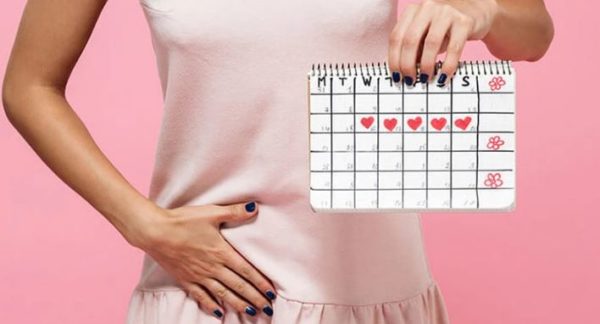Lifestyle
7 reasons you have cramps but no period

But what happens when you experience the cramps without the actual arrival of your monthly visitor? It can be confusing and frustrating, leaving you wondering what’s going on down there.
Cramps without a period are actually a fairly common occurrence. While it might be concerning at first, there are several reasons why this might happen, some more common than others. Before diving into the reasons behind cramps without a period, let’s take a quick look at what causes cramps in the first place.
Menstrual cramps, also known as dysmenorrhea, occur when the muscles in your uterus contract. These contractions help shed the lining of your uterus (the endometrium) during your period. Prostaglandins, hormone-like substances, play a key role in these contractions, and higher levels of prostaglandins can lead to more intense cramps.
1. Ovulation cramps
Ovulation is the process where an egg is released from your ovary. Sometimes, this process can cause mild cramping or a dull ache in your lower abdomen. This cramping, often referred to as mittelschmerz (German for “middle pain”), typically occurs around the middle of your menstrual cycle, about 14-16 days before your expected period. Ovulation cramps are usually short-lived and shouldn’t be severe.
2. Implantation cramps
If you’re trying to get pregnant, you might experience implantation cramps. This happens when a fertilised egg attaches itself to the lining of your uterus. Implantation cramps can feel similar to period cramps, but they usually occur earlier in your cycle, around 6-12 days after ovulation. Implantation cramps are typically mild and short-lived, but they can sometimes be accompanied by light spotting.
3. Stress can mess up your cycle
Stress can wreak havoc on your entire body, including your menstrual cycle. When you’re stressed, your body releases hormones like cortisol, which can disrupt the delicate balance of hormones involved in ovulation and menstruation. This disruption can lead to irregular periods, missed periods, or even cramps without a period.
4. Sudden weight loss or gain
Dramatic weight changes can also affect your menstrual cycle. Rapid weight loss can lead to hormonal imbalances, causing irregular periods or missed periods with occasional cramping. Similarly, sudden weight gain can disrupt your cycle and cause similar experiences.
5. Underlying medical conditions
Certain medical conditions can cause cramping and irregular periods. These include:
- Endometriosis: This condition occurs when tissue similar to the lining of your uterus grows outside the uterus. Endometriosis can cause pelvic pain, cramping, and irregular periods.
- Pelvic Inflammatory Disease (PID): This is an infection of the reproductive organs. PID can cause pelvic pain, cramping, and irregular periods.
- Uterine fibroids: These are benign tumours that grow in the muscle wall of the uterus. Fibroids can cause pelvic pain, cramping, and heavy or irregular periods.
6. Birth control
Starting, stopping, or switching birth control methods can sometimes cause temporary changes in your menstrual cycle, including cramping without a period. This is especially common with hormonal birth control methods like the pill or the implant. Your cycle should typically regulate itself after a few months of using a new birth control method.
7. Early pregnancy
Early pregnancy can sometimes cause cramping, which can be mistaken for a period. This cramping is caused by the fertilised egg implanting itself in the uterine lining. If you’re sexually active and experiencing cramping without a period, along with other early pregnancy symptoms like nausea, fatigue, or breast tenderness, it’s important to take a pregnancy test.
When to see a doctor
While cramps without a period are sometimes nothing to worry about, there are situations where it’s best to see a doctor. Here are some red flags:
- The cramps are severe and persistent.
- You experience unusual vaginal bleeding or discharge.
- You have other concerning symptoms like fever, nausea, or vomiting.
- You’ve missed several periods in a row (especially if you’re not pregnant or on birth control).










